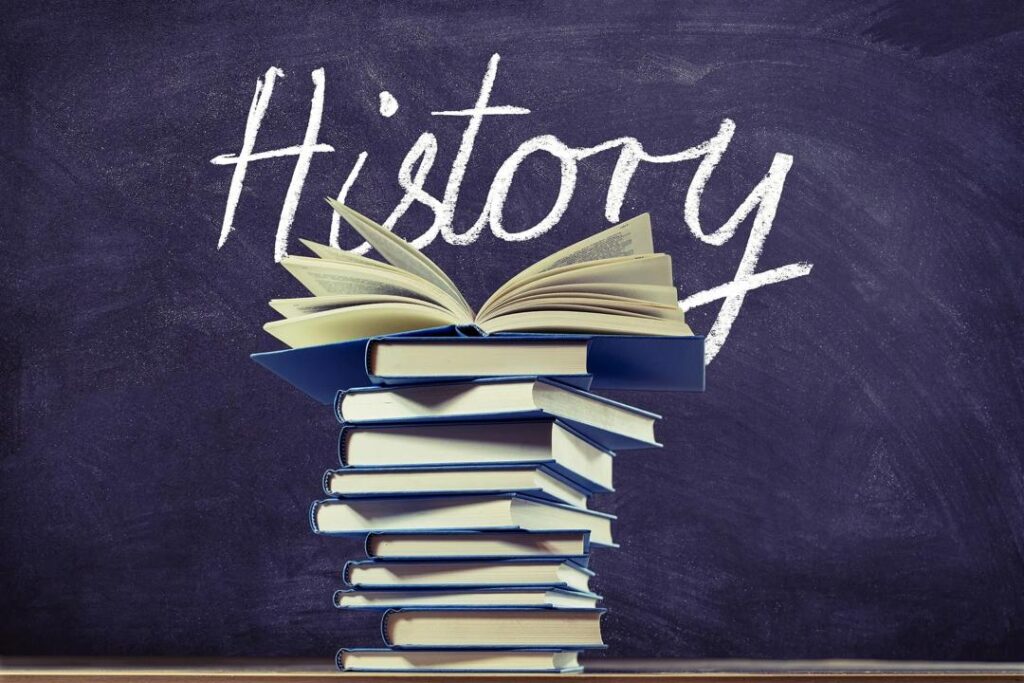Photo courtesy: TeachWell
By Dr. Sam Eno
ABSTRACT
The restoration of History into Nigeria’s primary and secondary school curriculum is a timely and necessary educational reform. History, when taught through an Africana-centered lens, provides nations with a critical understanding of their past, equips younger generations with lessons for the future, and cultivates national identity. This paper argues for the repositioning of History education in Nigeria by proposing a new curriculum outlay structured into ancient, medieval, and modern epochs, with emphasis on Nigeria’s historical development. The reformed curriculum must dismantle colonial distortions, highlight African and Nigerian contributions to global civilization, and offer differentiated professional outlines for primary and secondary levels of education.
INTRODUCTION
The deliberate removal of History from Nigeria’s school curriculum in the early 2000s created an intellectual vacuum with profound consequences for national identity, collective memory, and civic consciousness. A people disconnected from their past are ill-equipped to navigate their future. The reintroduction of History into Nigerian schools, therefore, represents not just a restoration but a reawakening of cultural consciousness. However, the restoration must transcend a mere reinsertion of outdated colonial syllabi. It requires a new curriculum framework grounded in authentic narratives that celebrate Nigerian and African experiences while situating them within the broader canvas of global historical development.
THE INTELLECTUAL IMPERATIVE OF RESTORING HISTORY
History is not merely a record of the past; it is a repository of experiences, struggles, victories, and lessons. For Nigeria, a nation of over 200 million people with diverse cultural traditions, History provides the unifying narrative that explains how these identities converge into one polity. Beyond national cohesion, History equips citizens with civic values, critical thinking, and resilience against revisionist distortions.
Colonial education in Nigeria deliberately manipulated historical narratives to privilege European exploits while diminishing African agency. For instance, the claim that “Mungo Park discovered the River Niger” erases the reality that indigenous communities had long lived, fished, and traded along the river. A decolonized History curriculum must correct such falsehoods: Mungo Park did not discover the river but was rather the first European to document it. By teaching such truths, History becomes a tool of intellectual liberation.
A New Curriculum Outlay for Nigerian Schools
1. Ancient History (Pre-1500)
Focus: Nigeria’s indigenous civilizations and Africa’s place in global antiquity.
Origins of humanity in Africa (archaeological and anthropological perspectives).
Nok culture and its iron technology.
Early kingdoms: Ife, Benin, Kanem-Bornu, Oyo, Igbo Ukwu, Hausa city-states.
African trade networks: Trans-Saharan trade, gold and salt routes.
Contributions of Africans to early philosophy, art, and science.
2. Medieval History (1500–1800)
Focus: Interactions with the wider world, internal growth, and resilience.
Expansion of Hausa-Fulani emirates and Yoruba states.
Benin Kingdom’s diplomatic and trading relations with Europe.
Trans-Atlantic Slave Trade: its devastations and African resistance.
Islam and Christianity in Nigeria.
Pan-African contributions during the medieval age.
3. Modern History (1800–Present)
Focus: Colonialism, resistance, independence, and nation-building.
The conquest of the Hausa states and British colonial consolidation.
Colonial economy and its distortions of indigenous systems.
Nationalist movements and the struggle for independence.
Post-independence crises: the First Republic, military coups, and the Nigerian-Biafran Civil War.
Civil war narratives re-examined beyond victor’s accounts to include lessons on reconciliation and national integration.
Nigeria’s role in Africa and global development (ECOWAS, African Union, peacekeeping, literature, music, Nollywood).
Changing the Colonial Narrative
Central to the restoration of History is the decolonization of narratives. Nigerian pupils must learn that African societies had sophisticated political systems, technologies, and philosophies before European intrusion. They must recognize that the slave trade and colonialism were not “civilizing missions” but exploitative disruptions. For instance:
Replace “Mungo Park discovered the Niger” with “Mungo Park was the first European to document the Niger River.”
Emphasize that Nigeria’s amalgamation was not a natural union but a colonial construct for economic convenience.
Present the Civil War not only as a tragedy of secession but as a crucible of national lessons on unity, justice, and inclusivity.
Lessons of History for the Future
Teaching History is not an exercise in nostalgia. It must be an intellectual endeavor to extract lessons applicable to contemporary Nigeria. From the Hausa-Fulani jihad to colonialism and the Civil War, Nigeria’s past warns against ethnic exclusivism, authoritarianism, and external domination. Equally, it demonstrates the resilience of Nigerians in creating art, governance, and social systems under difficult circumstances. By learning these lessons, Nigerian students can become better leaders, citizens, and innovators.
Separate Professional Curricula for Primary and Secondary Schools
Primary School Curriculum
At the foundational level, History should be taught in simplified narratives with emphasis on storytelling, legends, and cultural heroes.
Focus: fostering identity, pride, and moral lessons.
Content: folktales, origins of Nigerian ethnic groups, major heroes (e.g., Queen Amina, Jaja of Opobo, Oba Ovonramwen, Nnamdi Azikiwe, Funmilayo Ransome-Kuti).
Method: visual aids, storytelling, dramatization, songs, and drawings.
Objective: develop curiosity and a positive sense of belonging.
Secondary School Curriculum
At this level, History should become more analytical and critical.
Focus: interpretation of historical processes, causes, and consequences.
Content: divided into Ancient, Medieval, and Modern history as outlined above.
Method: primary sources, debates, research projects, oral traditions, use of archives and museums.
Objective: cultivate critical thinking, civic responsibility, and preparedness for tertiary-level historical inquiry.
The restoration of History in Nigeria’s schools is not merely a curricular adjustment but a national rebirth project. It is the foundation for cultural authenticity, civic education, and national integration. By adopting a new curriculum that privileges Nigerian and African contributions while challenging colonial distortions, Nigeria can cultivate generations that are historically conscious, intellectually liberated, and nationally committed. If History is taught with a view to learning lessons for the future, Nigeria will be better prepared to overcome the challenges of nation-building in the 21st century.
Sam Eno, PhD
Public policy Analyst

